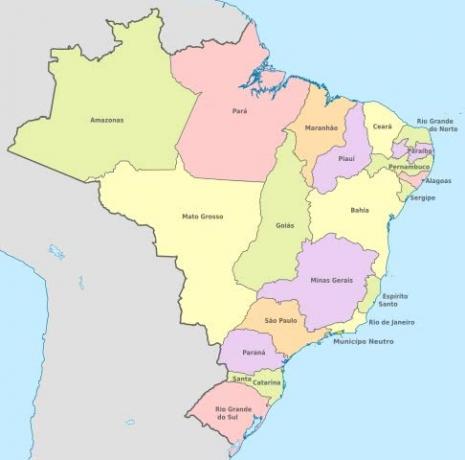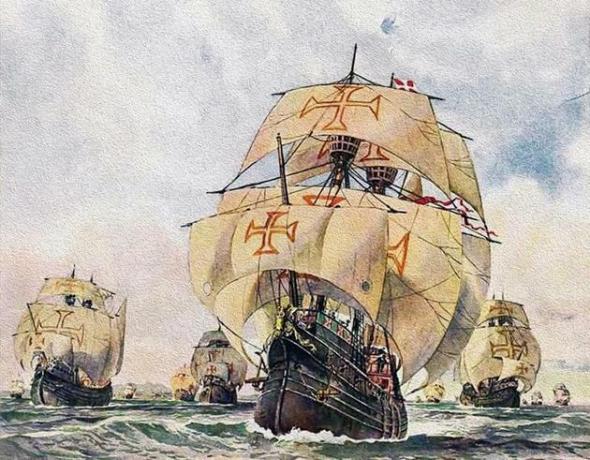O Baron of Rio Branco he was a Brazilian journalist, politician and diplomat. He was Brazil's Minister of Foreign Affairs from 1902-1912.
He passed into Brazilian history for having resolved important border issues with Argentina, France and Bolivia. After all, it incorporated 900,000 km into Brazilian territory without the need for armed conflicts.
Discover the life of the diplomat who shaped Brazil's modern borders.

Birth
José Maria da Silva Paranhos Júnior, was born on April 20, 1845, in Rio de Janeiro, and was the son of diplomat and politician José Maria da Silva Paranhos, the Viscount of Rio Branco. His parents' house was a meeting point for politicians at the time. Thus, from childhood, the future Baron of Rio Branco learned diplomacy in practice.
During the Paraguay War, he traveled in 1869, along with his father, as secretary of the Special Mission to Paraguay and Argentina.
For the next two years he witnessed the negotiations that ended the conflict between the Allies and Paraguay.
Formation
He studied Law at the Faculties of São Paulo and Recife.
He would be prosecutor and deputy in the Empire. He was also a journalist writing for the newspaper A Nação and later for the Jornal do Brasil.
As at that time there was no public examination for diplomacy, employees were appointed from among the sons of the elite. Therefore, the Baron of Rio Branco followed in his father's footsteps.
He received his first diplomatic post abroad due to his relationship with a Belgian actress, considered a scandal at the time. In this way he is appointed consul of Brazil in Liverpool.
The Baron of Rio Branco would still be minister of Brazil to Germany. He would return to Brazil at the request of the president Rodrigues Alves, to take over the Ministry of Foreign Affairs.
He held this position from 1902 until his death in 1912.
Border Issues
The Baron of Rio Branco defended the use of diplomacy and not war to resolve border disputes between Brazil and its neighbors.

Map of Brazil before the intervention of Rio Branco. It is possible to verify the absence of the state of Acre.
Question of Palmas – 1895
It was the first dispute resolved with the help of the Baron of Rio Branco.
Brazil and Argentina disputed territories west of Santa Catarina and the matter was submitted to international arbitration. The chosen referee was US President Grover Cleveland.
Rio Branco was appointed to be Brazil's attorney in the matter by Floriano Peixoto in 1893. Supported by extensive documentation and maps, the Baron of Rio Branco, proved that those lands were Brazilian and should be incorporated into Brazil and not Argentina.

Question of Amapá - 1899
Brazil's northern borders were not yet defined either. Brazil and France claimed that they had the right to part of the territory of the current state of Amapá.
France claimed that the limit should be beyond the Oiapoque river and Brazil claimed, precisely, that this river should be the border mark.
After armed conflicts in the region, both countries decided to submit the dispute to international arbitration. The Brazilian government asks the Baron of Rio Branco to write the dossier defending the rights of Brazil.
In April 1899, Brazil and France sent their memos to the president of the Swiss Confederation. In December 1900, the Swiss president gave a favorable decision to Brazil and the country incorporated 260,000 km into its territory.
Territory of Acre - 1903
The current state of Acre was claimed by Brazil and Bolivia. Several Brazilians were in the region working in rubber plantations when Bolivia leases the land to an American company.
In the face of insurrections and revolts, the Brazilian government decides to intervene. The Baron of Rio Branco alleges the principle of “uti possidetis” which defines that the territory belongs to whoever occupied it.
The settlement of the dispute ended in 1903 with the Petropolis Treaty.
This agreement ceded territories in the state of Mato Grosso to Bolivia, payment of indemnity and construction of the Madeira-Mamoré railway.
Rio Branco at the Ministry of Foreign Affairs
Rio Branco's management as Minister of Foreign Affairs can be summarized in a few principles:
- Do not meddle in the internal affairs of neighboring countries.
- In case of civil war or revolution in a border country, always support constitutional government.
- Do not resolve disputes through force, but through diplomacy.
- Approaching the United States to counteract the weight of European influence on the South American continent.
Curiosities
- The title of "Baron of Rio Branco" was granted to the diplomat by Princess D. Isabel, on 05.20.188. He would wear it all his life, even during the Republic.
- When he died on February 10, 1912, in the middle of Carnival, the party in Rio de Janeiro was postponed due to the tributes and popular commotion.
- Also in 1912, the capital of the state of Acre, then called Vila Pennápolis, became the so-called "Rio Branco".
- His face has stamped the old 1000 cruzeiros note for years. By antonomasia, people came to designate "money" as "baron".
read more:
- Formation of the Brazilian territory
- Aristocracy



